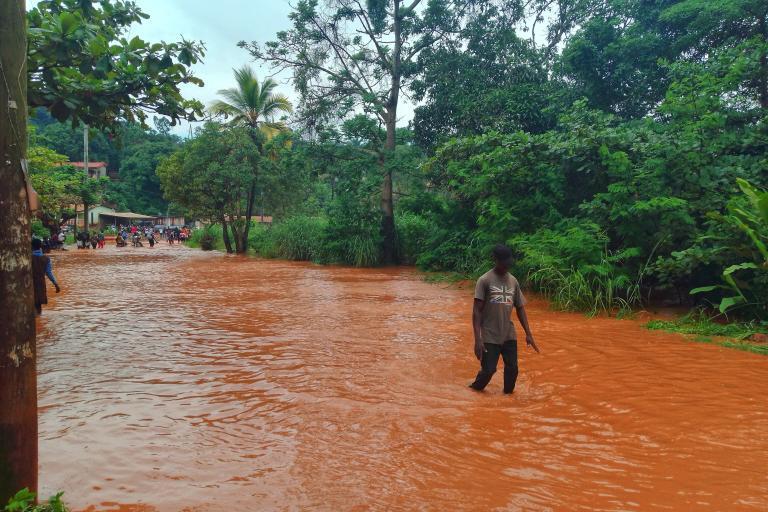Africa-Press – South-Sudan. Addis Ababa, Ethiopia (WMO) – WMO’s Regional Association for Africa met virtually from 13-15 May 2024 to address Africa’s challenges in weather, water, and climate-related issues. The session took place as devastating floods in East Africa and drought in southern Africa highlight the huge impacts on vulnerable societies. The meeting brought together heads of national meteorological and hydrological services throughout Africa in order to address critical concerns facing the strengthening of observation networks, enhancing climate services, promoting sustainable water management, and fostering regional cooperation.
“The application of meteorological and hydrological knowledge is invaluable in safeguarding lives, protecting property, supporting sustainable development, and fostering community resilience in the face of climate-related challenges,” said WMO Secretary-General Celeste Saulo in an opening address.
“Robust early warning systems for weather-related hazards, such as storms, floods, and droughts, to safeguard lives, livelihoods, and infrastructure is critical as about 60% of the African continent is not currently covered by early warning services,” she said.
In his keynote address, WMO President Abdulla Al Mandous said: “WMO is working to ensure that Africa has the capacity to deliver the weather, climate, and water services that are essential for sustainable development.” This includes investing in education and training and supporting capacity enhancement of national meteorological and hydrological services.
“This Regional Association is conscious of implementing the Early Warnings for All in Africa which seeks to strengthen national multi-hazard early warning/alert systems and to better enable an effective response to risks…. to ensure that every citizen is covered with early warning by 2027,” said Fetene Teshome, President of the Regional Association for Africa (RAI) and Permanent Representative of the Federal Democratic Republic of Ethiopia to WMO.
The importance of early warnings has once again been highlighted by extreme weather gripping different parts of the continent. Devastating flooding from exceptionally heavy seasonal rainfall has caused hundreds of casualties in East Africa, destroying infrastructure and crops and killing livestock. Burundi, Ethiopia, Kenya, Somalia and the United Republic of Tanzania are among the worst hit countries.
Southern Africa is currently facing an extreme environmental and humanitarian crisis as a severe drought grip the region, and impacting countries including Zimbabwe, Zambia, and Malawi.
The waning El Niño event, alongside a phenomenon known as the Indian Ocean Dipole, and high sea surface temperatures are playing a role. But the excess energy trapped in the atmosphere and ocean by human-induced greenhouse gases is also having a major influence by turbo-charging the extreme weather.
In view of Africa’s exposure to extreme weather events, the Regional Association meeting discussed the importance of efficient and reliable climate-related services. It adopted resolutions and decisions to strengthen observational networks, improve forecasting systems, and build capacity for climate adaptation and mitigation. It also highlighted the significance of sustainable water management practices, emphasizing monitoring of hydrological systems and promoting transboundary cooperation.
Accurate and timely weather, water, and climate information are essential for informed decision-making. Therefore, investments in observation infrastructure and disseminating relevant information are vital to safety of life and property against hazards such as tropical cyclones, droughts and floods.
Discussions at the three-day session included flood and drought management, capacity development, and integrated health science and services.
Regional collaboration has remained a cornerstone in addressing meteorological, climatological, and hydrological challenges through resolutions and decisions to promote regional networks, share data across borders, and undertake joint research initiatives.
The virtual session focused on implementing the WMO Strategic Plan 2024–2027, addressing key priorities such as the implementation of the Global Basic Observing Network (GBON) and the WMO Information System (WIS), and advancing the WMO strategy for service delivery through digital transformation.
The session also addressed the effective implementation of resolutions and existing gaps and provide input for future WMO activities. Participants, principally permanent representatives, hydrological advisers, and stakeholders, are expected to actively shape strategies for a more resilient and sustainable Africa.
source:wmo
For More News And Analysis About South-Sudan Follow Africa-Press






